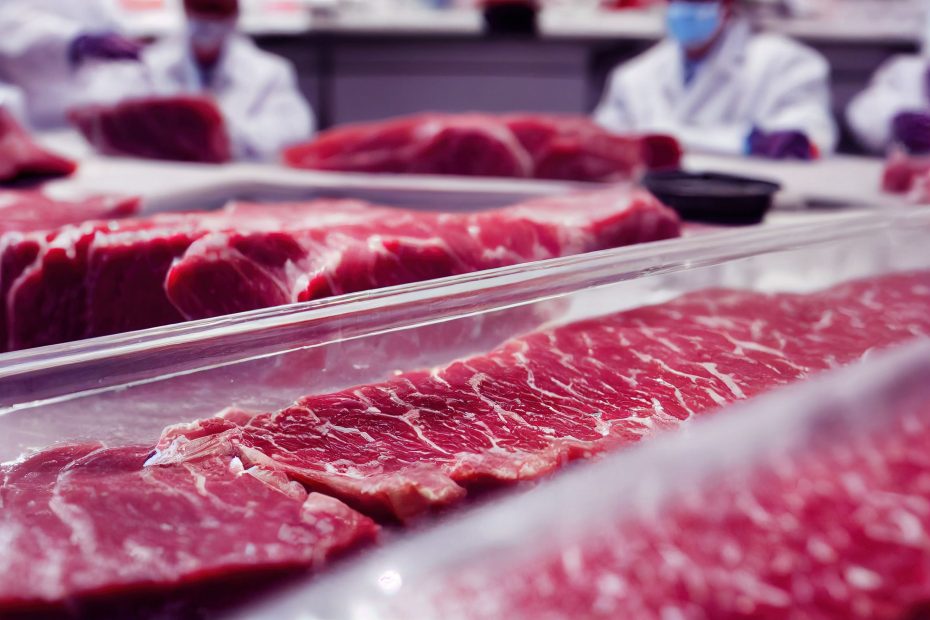
Chicken Export: What You, entrepreneur, need to know to expand your business beyond borders
One of the largest items exported by Brazil is the export of chicken. However, it’s important to understand the legal aspects and challenges involved in this process.
In this article, our law firm will guide you, in a clear and uncomplicated way, along the path of chicken export, providing you with the essential information you need to know to successfully and safely expand your business on an international level.
If you need legal assistance from our team, please message us on WhatsApp.
Author: Gustavo Tenório Campos Semaan
Introduction to the international export market of chicken
The international chicken export market is a booming sector, full of opportunities for Brazilian producers.
The export of chicken has shown to be a promising alternative since Brazil is recognized worldwide for the quality of its poultry production.
However, before entering this market, it is essential to understand the Brazilian rules and regulations that govern the export of chicken.
These standards aim to ensure food safety, traceability, and quality of the exported product.
One of the main standards required is sanitary certification, which proves that chicken is free of disease and is safe for human consumption.
In Brazil, the Ministry of Agriculture, Livestock, and Supply (MAPA) is the body responsible for issuing this certification. In addition, meatpackers wishing to export must be registered with the Federal Inspection Service (SIF), which ensures that they follow good manufacturing practices.
Traceability
Another important standard is traceability. Producers must be able to track every step of the production process, from poultry rearing to the time of export.
This allows any problem or irregularity to be identified, ensuring the transparency and reliability of the product.
In addition to the Brazilian standards, it is essential to know the requirements of the destination countries. Each international market has specific regulations that must be met.
These requirements may involve sanitary issues, such as the absence of certain diseases, or requirements related to the production process.
To enter the international chicken export market, it is necessary to comply with all rules and regulations, both Brazilian and foreign.
This requires investments in infrastructure, training, and constant monitoring of production.
In summary, the export of chicken is a lucrative opportunity for Brazilian producers. However, it is essential to understand and follow the required and mandatory standards, both national and international.
In this way, we guarantee the quality of the exported product, food safety, and the sustainability of the poultry sector in Brazil.
Legal and regulatory aspects of chicken exports
The laws and regulations regarding the export of chicken in Brazil are important to ensure that the chicken that is shipped to other countries is safe and of good quality.
These rules were created to take care of our health and for Brazil to be recognized as a reliable place in food production.
A very important law talks about the inspection of animal products, such as chicken. It mandates that the places that produce these foods need to be inspected to make sure everything is right and safe.
Another important thing is the Decree that regulates this law and establishes the rules for the inspection of establishments that produce chicken.
Thus, they need to follow all standards to ensure the safety and quality of the product that is exported.
The Ministry of Agriculture is the body responsible for taking care of the export of chicken. They issue a certificate that proves that the chicken is in good condition to be shipped to other countries.
It is also important to follow good practices during the production, storage, transport, and sale of chicken. This is to ensure that the food is safe for consumption.
These laws and regulations exist to protect our health and for Brazil to be seen as a reliable place in chicken production. Thus, when we buy exported chicken, we can have confidence in its quality and safety.
Tax planning for chicken exports
Tax planning is a key strategy for companies that want to export chicken to Brazil.
This process involves the analysis and application of specific tax laws and regulations, aiming to optimize the tax burden and ensure competitiveness in the international market.
An important law to be considered is Law No. 9,430/1996, which establishes general rules for federal tax legislation. This law defines the principles and rules for tax planning.
At the federal level, one of the relevant measures is the possibility of using special customs regimes, such as the Special Customs Drawback Regime.
About taxes, it is important to mention Complementary Law No. 87/1996, known as the ICMS Law, which establishes rules for the collection of the Tax on the Circulation of Goods and Services (ICMS) in export operations.
According to this law, exports are exempt from ICMS, which contributes to reducing the tax burden on sales operations abroad.
In addition, it is necessary to consider the state legislation, since each state has its own legislation for the collection of ICMS.
It’s important to know the particularities of each state and the possible exemptions or tax benefits offered.
Another relevant aspect is the analysis of international treaties to avoid double taxation.
Brazil has bilateral agreements with several countries, which establish rules to avoid the taxation of the same profit both in the country of origin and in the country of destination.
These treaties can reduce the tax burden on chicken export operations.
International contracts and private international law
International contracts are agreements established between parties located in different countries, and their regulation in Brazil involves Private International Law.
In this context, some relevant laws and regulations must be considered in the drafting and execution of these contracts.
An important law is the Law of Introduction to the Rules of Brazilian Law (LINDB), also known as Decree-Law No. 4,657/1942.
This law establishes the general rules for the application of Private International Law in Brazil, including the resolution of conflicts of laws and the determination of competent jurisdiction.
Another important point is the United Nations Convention on Contracts for the International Sale of Goods (CISG), ratified by Brazil.
This Convention establishes uniform rules for the formation and execution of contracts for the international sale of goods, simplifying and harmonizing trade relations between the signatory countries.
In addition, it is relevant to consider legislation specific to certain sectors.
For example, in the case of contracts in the field of maritime transport, Law No. 9,611/1998, which regulates the operation of maritime transport, establishes rules applicable to contracts for the international carriage of cargo.
Another important aspect of international contracts is the choice of law and jurisdiction clause. The parties may stipulate which law will apply to the contract and which court will have jurisdiction in the event of disputes.
However, it is essential to verify the validity and effectiveness of these clauses according to the laws of the country in question.
It’s worth mentioning that the support of a law firm specializing in Private International Law is essential to ensure that international contracts comply with applicable laws and regulations.
Essential documentation for the export of Chicken
To export Brazilian chicken, it is necessary to have the correct documentation.
These documents are important to ensure that everything is by laws and regulations, as well as to ensure the security of transactions.
Here are the essential documents:
- Export Registration (RE): This document is issued by the Federal Revenue Service and is mandatory for all exports. It contains information about the exporting company, the type of product, the country of destination, and other important information.
- Export Invoice: It is a financial document that proves the departure of chicken from Brazil. It shows details about the product, such as quantity and value.
- Sanitary and Phytosanitary Certificate: This certificate is issued by the Ministry of Agriculture and certifies that the chicken is free of diseases and safe for consumption. It is a guarantee that the product meets the requirements of the importing country.
- Certificate of Origin: This document proves the origin of the chicken, that is, it shows that it is really from Brazil. Some countries may require this to grant tax benefits.
- Bill of Lading: It is a document issued by the carrier that proves that the chicken is being transported safely to the final destination.
Remembering that each importing country may have specific requirements, it’s important to seek guidance from specialized professionals.
If you need legal assistance from our team, please message us on WhatsApp.
Posts Relacionados:
Autor Convidado
A Koetz Advocacia convida advogados autores para colaborar em nosso site, para discutir assuntos internacionais e migratórios.
Saiba mais



